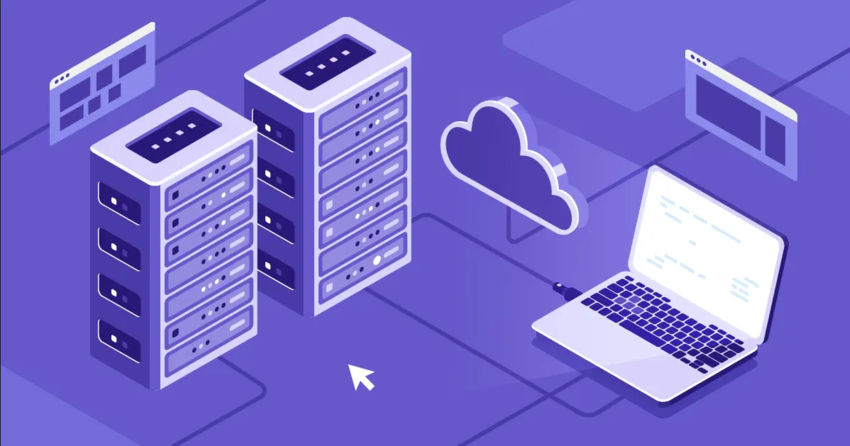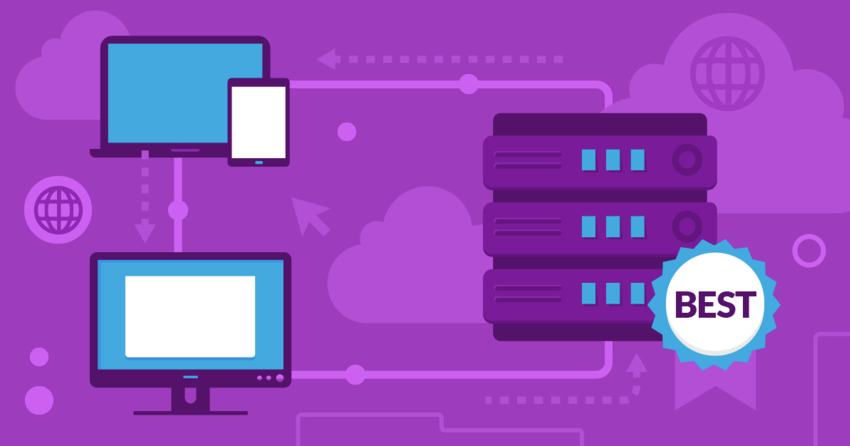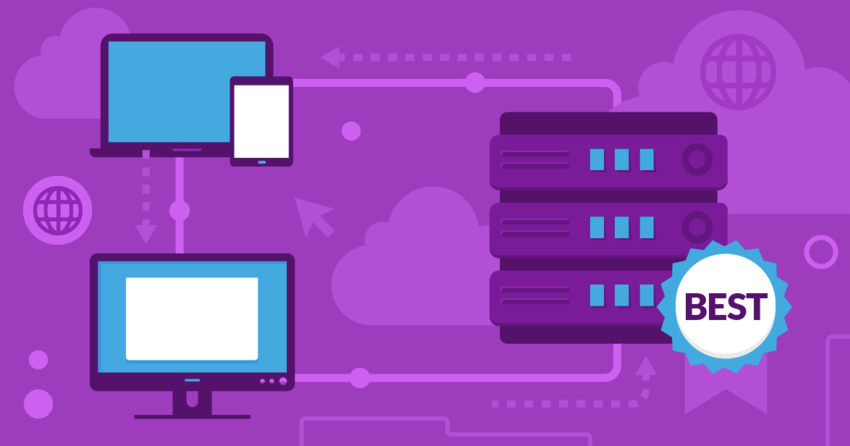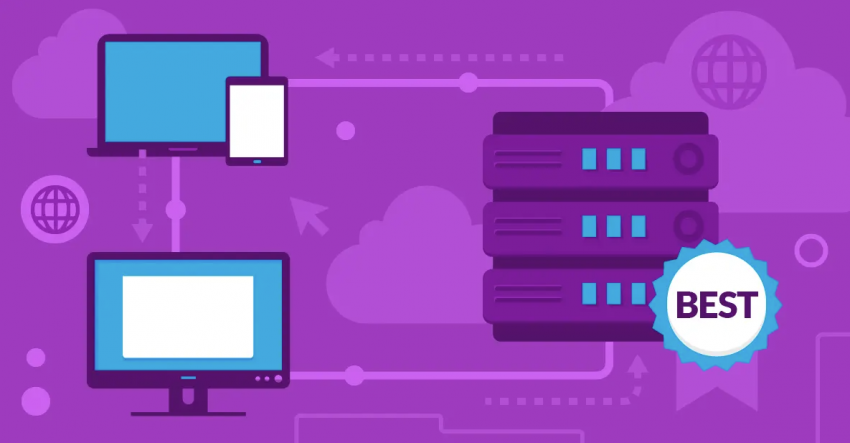Inside this Article
1. Plans and Pricing
Rackspace Is Pricey – OVHcloud’s Pricing Is Reasonable
With Rackspace, you can opt for the provider’s own servers or for a managed popular cloud infrastructure such as Google Cloud Platform (GCP), Amazon Web Services (AWS), Alibaba, Azure, and more. There’s no way to know exactly how much you’re going to pay before you request a quote, because Rackspace calculates the final cost based on infrastructure and support level. However, you can expect to pay over $100 per month for 1 vCPU, 2 GB RAM, and 20 GB SSD storage. For half the price, you can start on an OVHcloud Public Cloud instance that gives you significantly more resources, with 2 vCPU, 7 GB RAM, and 50 GB SSD storage. It’s also important to note that Rackspace doesn’t have a money-back guarantee, while OVHcloud gives you 30 days to get your money back. If you’re a small or medium-size business, you’re better off with OVHcloud. Independent developers or freelancers can also go with an even more affordable, self-managed VPS plan, which is not something you can do with Rackspace. However, if you’re part of a large company or the leader of a big project looking for a top-dollar, customized cloud hosting solution, Rackspace is your guy.2. Features
OVHcloud Helps You Innovate, Rackspace Manages Everything for You
Here’s the big difference between Rackspace and OVHcloud. With OVHcloud, you get a bare server, and it’s up to you to decide what to do with it. Sure, you get a free domain name for one year, but unless you understand the command line, setting it all up could be a nightmare. Rackspace, on the other hand, is fully managed. Its support staff will take care of the installation, server optimization, security configurations, and whatever else you need set up. It’s a bespoke solution geared toward simplicity for large businesses. OVHcloud offers VPS (virtual private server) solutions as well as dedicated servers, while Rackspace is solely in the cloud. For an extra fee with OVHcloud, you can install a control panel, like Plesk or cPanel. And you can add a free Let’s Encrypt SSL certificate, but you can do that with any host that offers VPS. If you’re a developer with the command line in your blood, OVHcloud might be for you, but Rackspace wins the features category simply by taking all the hard work off your hands.3. Performance
Rackspace Promises 100% Uptime, but OVHcloud Offers Great Performance All Around
Rackspace has an impressive collection of 14+ data centers in North and South America, Europe, East and Southeast Asia, and Australia. It has a solid 100% uptime guarantee. In addition, if you need more range and you don’t mind the additional costs, Rackspace’s hybrid cloud team will integrate any of the most popular infrastructures for you. You can choose from Amazon Web Services (AWS), Microsoft Azure, and more and benefit from their many data centers. Meanwhile, OVHcloud lets you choose a cloud instance among data centers in Australia, North America, Europe, and Asia. Its uptime guarantee depends on the service-level agreement of your chosen plan.
Because every Rackspace plan is custom-built, performance depends on the solution you choose. You can read about our experience with this provider in our in-depth Rackspace review.
OVHcloud scored very well in our performance tests. To find out more, you can check out our expert OVHcloud review.
4. Security
OVHcloud Gives You Protection, Rackspace Charges You Extra
From strict data center surveillance to DDoS protection, active server monitoring, and managed data encryption, Rackspace and OVHcloud guarantee high-level security for your web architecture. One thing that’s worth mentioning is that OVHcloud offers a free SSL gateway for low-traffic websites, as well as free automatic backups for certain plans, such as the OVHcloud VPS cloud. Rackspace gives you the option to purchase a Symantec Secure Site SSL, which the team will install, manage, and maintain for you. If you ever need assistance with website security, you can have a team of security experts inspect and optimize your page. For managed cloud plans, both Rackspace and OVHcloud charge extra for automated backups, depending on the size of the snapshot.5. Support
OVHcloud Has VIP Support, Rackspace Support Is Underwhelming
Rackspace and OVHcloud have solid knowledge bases that include thorough documentation, tutorials, and how-to articles. Rackspace provides phone, email, live chat, and ticket support services. While live chat didn’t prove exceptionally useful for new customers, it should receive greater attention for established clients, just like any other website host. OVHcloud offers a paid VIP support option, which will put you at the front of the help queue. However, there’s a good chance the community forum will lend a hand before OVHcloud does. It took three days to get a response to my question.Expensive Doesn’t Always Mean Better
If you compare OVHcloud and Rackspace based on their versatility and cost-effectiveness, OVHcloud pulls ahead. Since Rackspace works exclusively with businesses, OVHcloud is the only option for independent developers or freelancers. However, if you are a big company on the lookout for a completely managed solution, Rackspace may be a more viable choice for specialized assistance and infrastructure integration. Keep in mind that neither Rackspace nor OVHcloud made it onto our list of the best web hosting services. To see the ones that did, check out our page for the top 10 best web hosts. These are the main takeaways for each section of my comparison:OVHcloud
Rackspace
Plans and Pricing
Reasonable plans ranging from cheap to high-end solutions
Premium prices geared toward enterprises
Features
Free domain name for one year
Managed or intensive managed service level, discounts for high-volume usage
Performance
Cloud servers optimized for intense database operations, uptime based on plan
More expansive data center network than OVHcloud, 100% uptime guarantee
Security
Free private network (vRack), permanent anti-DDoS protection, load balancers available for a fee
High-availability security team that will monitor and assess your architecture, free cloud monitoring
Support
24/7 support via email, tickets, and phone; VIP support package available for a fee
24/7 support via email, tickets, live chat, and phone
FAQ
1. Is OVHcloud better than Rackspace?
OVHcloud is a better solution for small businesses and independent developers, while Rackspace is a managed cloud hosting service that exclusively addresses the needs of large companies.2. Is OVHcloud any good?
Despite plenty of features and a reasonable price, OVHcloud can be hard to navigate. Before signing up for a plan, I recommend you check out the top web hosting companies. However, if you have a bit of developer knowledge and you don’t mind troubleshooting things yourself, OVHcloud is a reliable service.3. Does OVHcloud offer VPS hosting?
OVHcloud has a good selection of affordable VPS hosting options. You can choose between a plan that is optimized for storage (VPS SSD) and another with enhanced RAM (VPS RAM), or go with a high-availability solution in the form of VPS cloud. Before you make your decision, though, it’s a good idea to compare OVHcloud with the top VPS hosting solutions. You might be surprised to find that most web hosts offer a better value.4. How can I connect my GoDaddy domain to OVHcloud?
Log into your OVHcloud dashboard and head over to the Web section of the control panel. It should be in the horizontal menu at the top of the page. Once you’ve selected it, click on the Associated domains tab. Here, you can find out whether your CNAME is valid or not. If the CNAME tag under Diagnosis section appears as red, it means that you need to confirm that you are the owner of this domain name. You have 48 hours to do so. To perform this validation, you have to log into your GoDaddy account (or the web host that you’ve bought the domain name from) and change the DNS (Domain Name System) settings. For GoDaddy, simply log into your account and go to the Domain Manager. Then, go to the domain name you want to validate and click on Domain Settings. Navigate to Additional Settings and click on Manage DNS:- At the bottom of Records, select Add.
- Select the CNAME type.
- Complete the fields. In the Host section, copy the CNAME record you get from OVHcloud. It should be visible whenever your cursor is over the red CNAME tag in the Associated Domains tab for the OVHcloud In Points to, you can insert “@” if you want it connected to your root domain.





![8 Best Enterprise WordPress Hosting (Scalable & Reliable) [2024]](https://dt2sdf0db8zob.cloudfront.net/wp-content/uploads/2024/11/Best-Enterprise-WordPress-Hosting-1.png)
![8 Best Enterprise WordPress Hosting (Scalable & Reliable) [2024]](https://dt2sdf0db8zob.cloudfront.net/wp-content/uploads/2023/05/Caitlin-Greyling-150x150.jpg)










